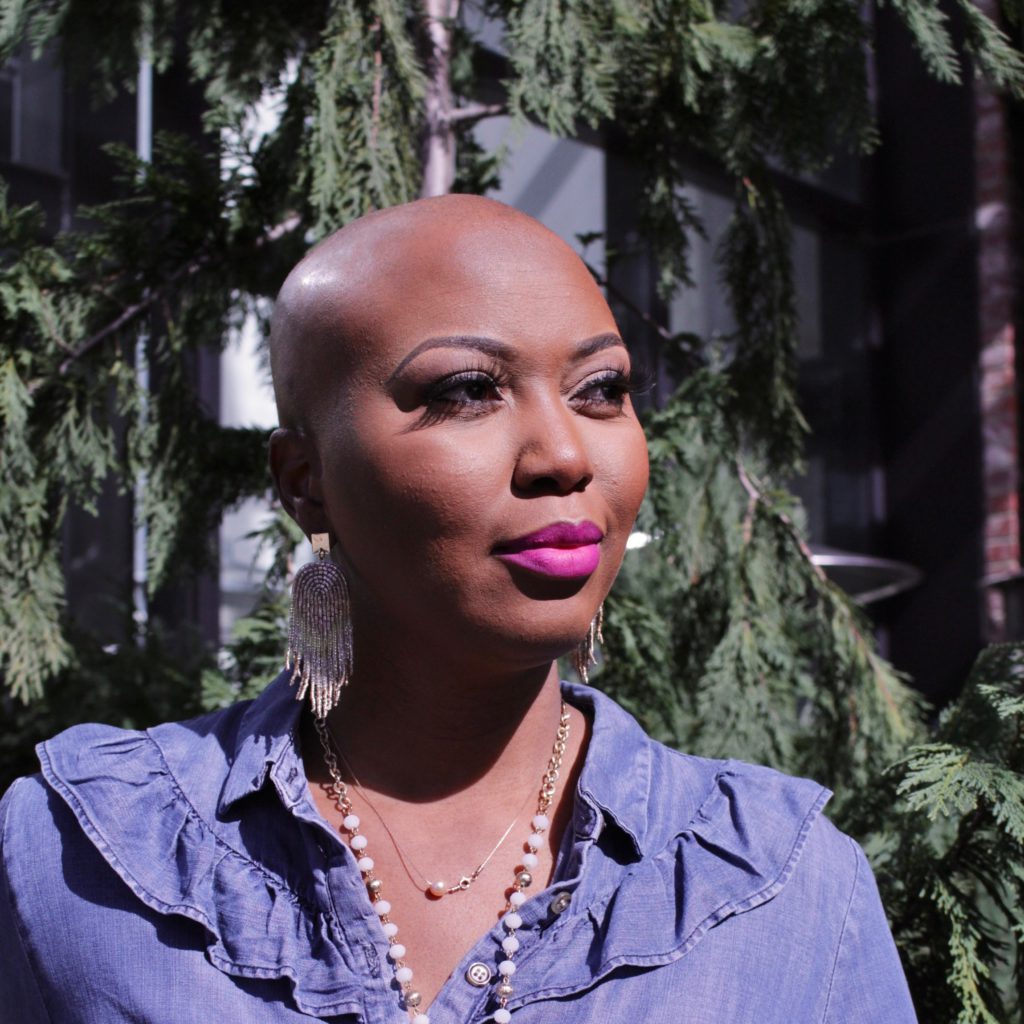Bladder Cancer Causes & Symptoms – Described by Real Patients

While the specific cause of bladder cancer may be unknown, there are risk factors and symptoms that may indicate you should take extra precautions to limit your chances of getting bladder cancer or may already have it.
In this article, we look at the gene mutations that cause bladder cancer, some of the risk factors associated with bladder cancer, and the symptoms of bladder cancer.
What Causes Bladder Cancer?
Bladder cancer occurs when cells in the bladder develop mutations in their DNA and begin to multiply rapidly. DNA is a chemical in our cells that make up our genes, which help control the function of cells.
There are two types of genes that impact cancer by determining when cells grow, divide, and die:
- Oncogenes – help cells grow and divide
- Tumor suppressor genes – help repair mistakes in the DNA, control cell division, and cause cells to die
Sometimes gene mutations cause cancer by allowing the oncogenes to stay on constantly or the tumor suppressor genes to remain off. This change can create an abundance of abnormal cells. Eventually, the abnormal cells replace healthy cells and form a tumor.
Can Bladder Cancer be Inherited?
When we think of genes, we often think about the traits that we inherit from our parents. However, when it comes to gene mutations, they can be acquired or inherited.
Most people do not inherit gene mutations that cause bladder cancer. However, it is possible to inherit genes that increase your risk of getting bladder cancer due to a reduced ability to break down cancer-causing chemicals.
Most of the gene mutations related to bladder cancer are from gene mutations that are acquired during your lifetime. While chemicals associated with cancer may cause the mutations, they can also occur from random events occurring within a cell.
What are the Risk Factors of Bladder Cancer?
While researchers don’t know what causes genes to mutate and become cancer cells, there are certain risk factors that have been identified as increasing your risk of getting bladder cancer. According to the Cleveland Clinic, some of these risk factors include:
- Smoking or exposure to second-hand smoke – inhaled smoke gets processed through your body. As a result, some of the harmful chemicals eventually end up being excreted into your urine, where it sits in your bladder.
- Radiation exposure – radiation therapy to treat other forms of cancer may increase your risk of getting bladder cancer.
- Exposure to certain chemicals – since your kidneys filter harmful chemicals from your bloodstream to your bladder, it is believed that some of these chemicals may contribute to an increased risk of bladder cancer. Some chemicals linked to bladder cancer include arsenic and chemicals used in producing dyes, rubber, textiles, leather, and paint products.
- Frequent bladder infections – those with a history of reoccurring bladder infections due to inflammation may be at increased risk of squamous cell bladder cancer.
- Being over 55 – the risk of bladder cancer increases as you age. The majority of people diagnosed with bladder cancer are over the age of 55.
- Being male – men are at a higher risk of bladder cancer than women.

“Unbeknownst to me at the time and to a lot of people now, there are plastic softeners in catheters that have DEHP (di(2-ethylhexyl) phthalate) in them and that is, of course, a known carcinogen. It’s a combination of a foreign object repeatedly going in and out of your bladder and then the infections. I’m working now and advocating to get DEHP and other carcinogens out of catheters because we need to be able to eliminate that.”
Karen R. | Read More
Can Bladder Cancer Be Prevented?
While limiting risk factors can help decrease your chances of getting bladder cancer, it doesn’t necessarily mean that you won’t get it. However, aside from living a generally healthy lifestyle, there are a few things that you can do to lower your risk:
- Avoid smoking – smoking increases your risk for most cancers, but it is especially bad for bladder cancer. If you smoke now and want to quit, smokefree.gov provides some excellent resources to get started.
- Limit exposure to chemicals – while some substances linked to bladder cancer can’t be avoided. Limiting exposure to chemicals used in leather, rubber, textiles, and paint is best. If you work with these items daily, practicing proper workplace safety habits is essential.
- Drink water – heard this one before? Drinking plenty of water is not only good for your health overall, but it may lower your risk of bladder cancer.
- Eat fruits and veggies – some studies suggest that eating fruits and vegetables may significantly decrease your risk of bladder cancer.
Bladder Care Symptoms
The signs and symptoms of bladder cancer can vary based on how far the cancer has progressed. However, the general symptoms of bladder cancer include the following:
- Blood in urine
- Painful urination
- Back pain
- Frequent urination or not being able to empty your bladder fully
While the above symptoms don’t necessarily indicate that you have bladder cancer, you should visit your healthcare provider if you are experiencing them.
“I think one of the things that is very common for cancer patients is that we don’t feel anything. Nothing’s up. We don’t have any pain symptoms or discomfort or anything like that. It was the same for me, except for that one day late in November, I noticed that my urine was the color of rosé, like a deep rosé.”
Margo W. | Read More
“My initial symptom was after a visit with my annual gynecologist, and they noticed that there was blood in my urine [at] a microscopic level. I couldn’t even see it, but a microscopic level of blood in my urine. They referred me to a urologist to try to look into what was going on. [It] kind of freaked me out. “
Ebony | Read More
Early Symptoms of Bladder Cancer
In its early stages, bladder cancer can present symptoms associated with abnormal changes in your urination. Some of these symptoms include:
- Having to urinate more frequently, especially at night
- Feeling the need to urinate even when your bladder isn’t full
- A burning sensation or pain when urinating
- Having a weak urine stream or struggling to urinate
These symptoms often suggest other urinary tract issues like a urinary tract infection (UTI), bladder stones, or an enlarged prostate. However, if you are experiencing these symptoms, getting tested to determine the root cause is essential.
Late-Stage Symptoms of Bladder Cancer
As bladder cancer spreads beyond the bladder into other body parts, those impacted by the disease may experience different symptoms. Some of the symptoms of late-stage bladder cancer include:
- Lower back pain, especially on one side
- Loss of appetite
- Extreme fatigue
- Unintentional weight loss
- Swelling in the feet
- Bone pain
Are There Different Bladder Cancer Symptoms for Men and Women?
The symptoms of bladder cancer are generally the same for both men and women. However, bladder cancer is more prevalent in men than in women, but women tend to get diagnosed at a later stage than men.
Additionally, it may take longer for older women, particularly women of color to be diagnosed, according to Dr. Samuel Washington, a urologist oncologist and assistant professor in residence at the University of California, San Francisco.
He says, “Particularly in women who are past menopause, postmenopausal bleeding is most certainly a concern to make sure we don’t miss a cancer diagnosis or something else that may be going on.”
More Bladder Cancer Patient Stories
Laurent Gemenick, Bladder Cancer
Symptom: Presence of blood in urine
Treatment: Surgery: transurethral resection of bladder tumor or TURBT
Jon T., Locally Advanced Muscle-Invasive Bladder Cancer
Symptom: Darkening urine, blood in urine, dull right flank pain
Treatments: Surgery(transurethral resection of bladder tumor or TURBT), antibody-drug conjugate, chemotherapy
Michael V., Bladder Cancer (Non-Invasive High-Grade Papillary Urothelial Carcinoma), Stage 1
Symptoms: Frequent urination, burning sensation when urinating
Treatments: Surgery (transurethral resection of bladder tumor or TURBT), immunotherapy (Bacillus Calmette-Guérin or BCG treatment)
Dorinda G., Bladder Cancer
Symptom: A significant amount of blood in the urine
Treatments: Surgery (transurethral resection of bladder tumor/TURBT, surgery for papillary lesion), immunotherapy (BCG), chemotherapy
Healing Together: A Mother and Daughter Navigate High-Grade Bladder Cancer
Mary Beth’s story about caregiving starts with an important awareness message about female bladder cancer symptoms.
Danny G., Non-Muscle Invasive Bladder Cancer
Symptoms: Fatigue, back pain, erectile dysfunction, nausea
Treatments: Surgery (transurethral resection of bladder tumor or TURBT), chemotherapy, immunotherapy








